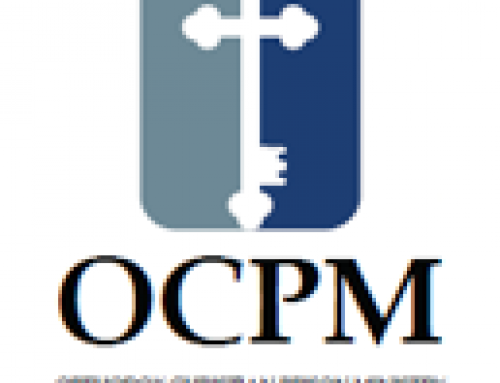This post was originally published on this site
Today we share two companion articles of advice for college students. The first is a Facebook post written by the Very. Rev. Abbot Tryphon, Igumen of All-Merciful Saviour Monastery on Vashon Island, Washington. The second offers commentary in response to the post from Fr. Theodore Pulcini. Fr. Theodore recently retired after serving 30 years as as college professor, most recently Assistant Professor of Religion at Dickinson College, Carlisle, PA, and as the pastor of St. Mary’s Antiochian Orthodox Christian Church in Chambersburg, PA. Both articles offer much wisdom and guidance to Orthodox Christian students.
Some Additional Advice to Orthodox College Students from a ‘Non-Wolf’ Professor
This afternoon, in opening my email, I read with great interest the piece written by Abbot Tryphon entitled “The Challenge of Staying Orthodox in an Anti-Christian Environment.” There is much sage advice in his admonishment, and Orthodox students on their way to college would do well to digest that advice. I must admit, however, that I was a bit taken aback by several characterizations presented by this much-respected monastic author and will now presume to comment on them (pace Father Abbot).
In the interest of full disclosure, let me state at the outset that I write this response as a Christian (I have served as an Orthodox priest for over thirty-seven years in the Antiochian Archdiocese) and as an academic (yes, as a college professor at several secular institutions of higher learning for some thirty years). So you will understand why I took some exception to the way college professors are characterized in the article. Without a doubt, there are some college professors that lump Christians together and depict them unfairly and simplistically, but then again there are some Christian commentators who tend to do likewise to college professors. The one mischaracterization does not justify the other—and I dare say that I have been the target of both.
Indeed I have to admit that some of my professorial colleagues over the years could be arrogant, insulting, and power-obsessed. But the vast majority were absolutely not! Yes, professors will sometimes go to considerable lengths to challenge their students to think, to question, and to analyze critically and systematically. For this they should not be faulted. That is, after all, their job. No one should go to college assuming (as many students unfortunately do) that nothing presented to you should make you feel challenged or uncomfortable or obliged to exert effort. In college, as in the larger society, you will not, without fail, have every one of your stances affirmed by everyone else. You must apply yourselves to learn how to argue your opinions with persuasiveness—and yes, with civility, too—in the dialogues you will undoubtedly have with others. This is essential to the development of intellectual and emotional maturity. To avoid such maturation, many around you will take false comfort in aggressive ideology of the sort that seems to be metastasizing at every turn in our society. Good college professors will guide you toward healthy maturation and will embody it in their own interactions with others, including their students. Bad ones will bludgeon others with their ideologies and not tolerate any dissent. Gravitate toward the former and not the latter. And believe me, at any reputable college or university, the good professors far outnumber—and far outshine–the bad. They are not your adversaries, even if they sometimes push you to consider perspectives you may not have had to face before. In short, to depict professors as universally adversarial is simply unfair—and untrue.
In fact, to do so duplicates an error of bad professors, who tend to depict groups they oppose as monoliths, all of whose constituent parts are uniform. For example, the aggressive anti-Christian professors of the sort to which Abbot Tryphon refers, tend to caricature Christianity as a monolith, implying all Christians are the same. Then they single out those Christians who (to use Abbot Tryphon’s words) are blatantly “closed-minded and backward-looking” (and let’s face it, many are!) and then attribute such undesirable traits to all Christians. They attack the “straw-man” Christian they create and then, through him, defame all Christians. This is simply dishonest and intellectually faulty argumentation.
As a college student, this is precisely the sort of counter-argument that you have to train yourself to be able to make. Every challenge you face in your courses, if used correctly, can make you stronger. I agree wholeheartedly with Abbot Tryphon when he says that “know from the moment you enter that classroom that the professor is a better debater than you, so don’t place yourself in his scope. If you do, expect to be blown out of the water.” He is right. As the old Shakespearean proverb goes, “Discretion is the better part of valor.” But do not let your discretion simply be an act of surrender and cowardice. If you feel your conviction as an Orthodox Christian is being unfairly depicted and attacked, learn how to disarm your opponents in a situation where you can speak freely and without intimidation (for example, privately, during office hours). Use the unpleasant challenge you have had to face in class as an impetus to accrue the knowledge and develop the rhetorical skills needed to defend your faith convincingly in the face of future attacks. Learn the skills of critical thinking to challenge the flaws in your opponents’ arguments. Build the knowledge that will enable you to show that what your opponent assumes is true of all Christians is not at all true of Orthodox Christians. Show them how Orthodoxy is not just part of some “Christian monolith” but stands apart as unique in so many ways. Use your college career to build your spirit and your mind to grow far beyond where you are on the day of matriculation. If you use your years in college well, at the end of your studies you will advance “to maturity, to the measure of the full stature of Christ” (Ephesians 4:13). Shake off complacency and inertia! Rise to that challenge.
Abbot Tryphon begins his reflection by referring to one of my favorite New Testament commands of Christ: ““Behold, I send you out as sheep in the midst of wolves; so be wise as serpents and innocent as doves” (Matthew 10:16). In his advice, Father Abbot, to good effect, tends to emphasize the first part of this passage, urging you to be wary of the wolves who may be your professors. But as a “non-wolf” professor—alongside many other non-wolf (and, yes, even Christian!) professors—I want to join to his admonishments my own bit of advice: While in college maintain your faith in dove-like innocence, but use your college experiences (even those with wolf-like professors) to become as “wise as serpents.” Your wisdom will help your personal faith to mature, and it will benefit the Church at large by virtue of your ability to express and defend that faith in a world full of counter-arguments.
My thoughts converge very well with Father Tryphon’s words in his last paragraph. With him, I encourage you to “build a support system for yourself by gathering together with other college students to form a chapter of the Orthodox Christian Fellowship. Meet on a weekly basis for worship, study, and networking.” No better advice than this can be given to you as you head off to college. May God prosper all your efforts!
–Fr. Theodore Pulcini




